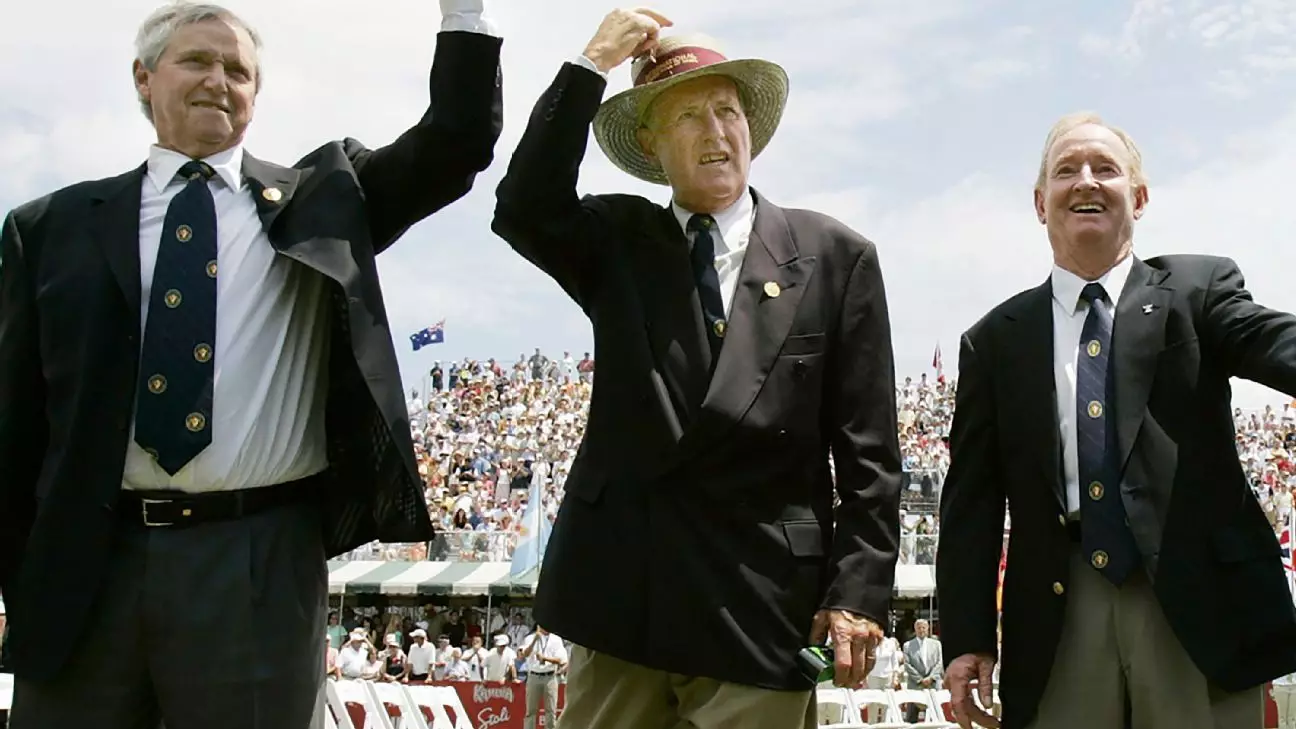Melbourne has witnessed the passing of a sporting legend, Neale Fraser, who departed this world at the age of 91. Fraser was a monumental figure in the realm of tennis, celebrated for his remarkable accomplishments both as a player and a captain. His death has elicited a profound sense of loss within the tennis community, with Tennis Australia expressing that the sport has “lost one of its giants.” The memories of his contributions resonate deeply, as he shaped the landscape of Australian tennis over a span of 24 years.
Fraser’s athletic prowess first came to national attention when he triumphed at Wimbledon in 1960, besting the legendary Rod Laver—a duel that is often commemorated in discussions about tennis greats. His achievements were not confined to singles; Fraser showcased exceptional talent in doubles as well, securing eleven major men’s doubles titles and conquering the US Open with a clean sweep that included singles, men’s doubles, and mixed titles in 1959 and 1960. This versatility and exceptional skill solidified his place in tennis history.
Beyond his accolades as a player, Fraser’s impact continued as he assumed the role of the Davis Cup captain. He took the helm in 1970 and persisted until 1993, mentoring several prominent tennis figures and leading Australia to four Davis Cup victories during that period. His ability to inspire and lead was recognized by contemporaries and younger players alike, with John Newcombe, John Fitzgerald, and Pat Cash all crediting Fraser’s guidance for their success. Fraser’s commitment to nurturing talent and fostering a competitive spirit has left an indelible mark on Australian tennis.
In the wake of his passing, Rod Laver paid tribute to his close friend and rival, acknowledging Fraser as “a true gem in a golden era of Australian tennis legends.” Laver highlighted the personal growth he experienced by competing against Fraser, illustrating the profound respect shared between these two titans of the sport. Such tributes reflect not just the professional rivalry, but also the camaraderie that characterized their relationship, a testament to Fraser’s sportsmanship and character.
Fraser’s significant contributions were formally recognized through his induction into the International Tennis Hall of Fame in 1984 and receiving the prestigious Philippe Chatrier Award in 2008, which celebrates those who have made outstanding achievements in tennis. Such honors are a stark reminder of his legacy, not only in Australia but across the global tennis community.
Fraser’s journey through the highs and lows of a storied career has inspired generations of players, and his influence will certainly persist in the ethos of tennis as a sport. The legacy left by Neale Fraser serves as a benchmark of excellence that continues to inspire aspiring athletes, ensuring that he remains a celebrated figure in the annals of tennis history.

